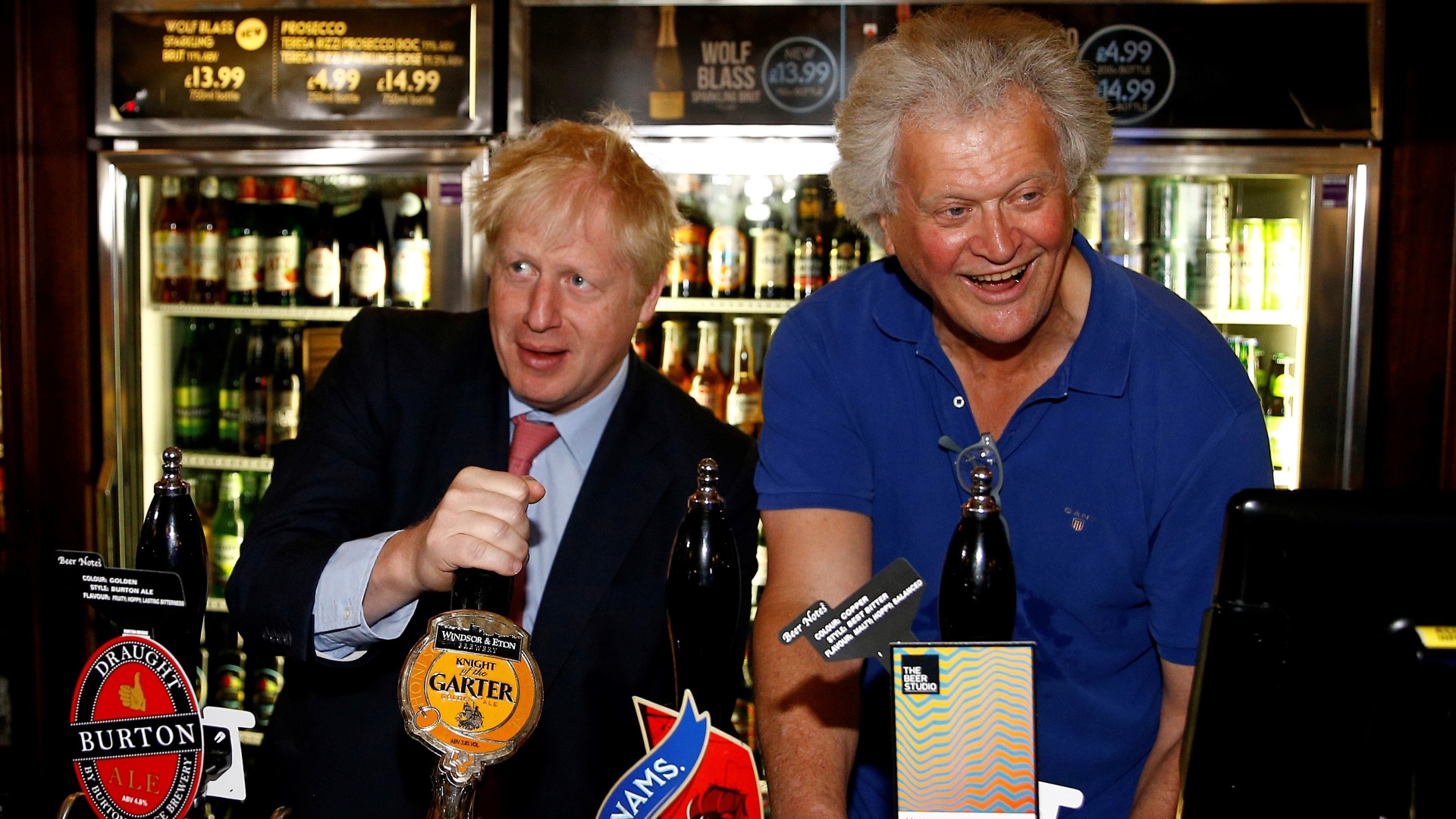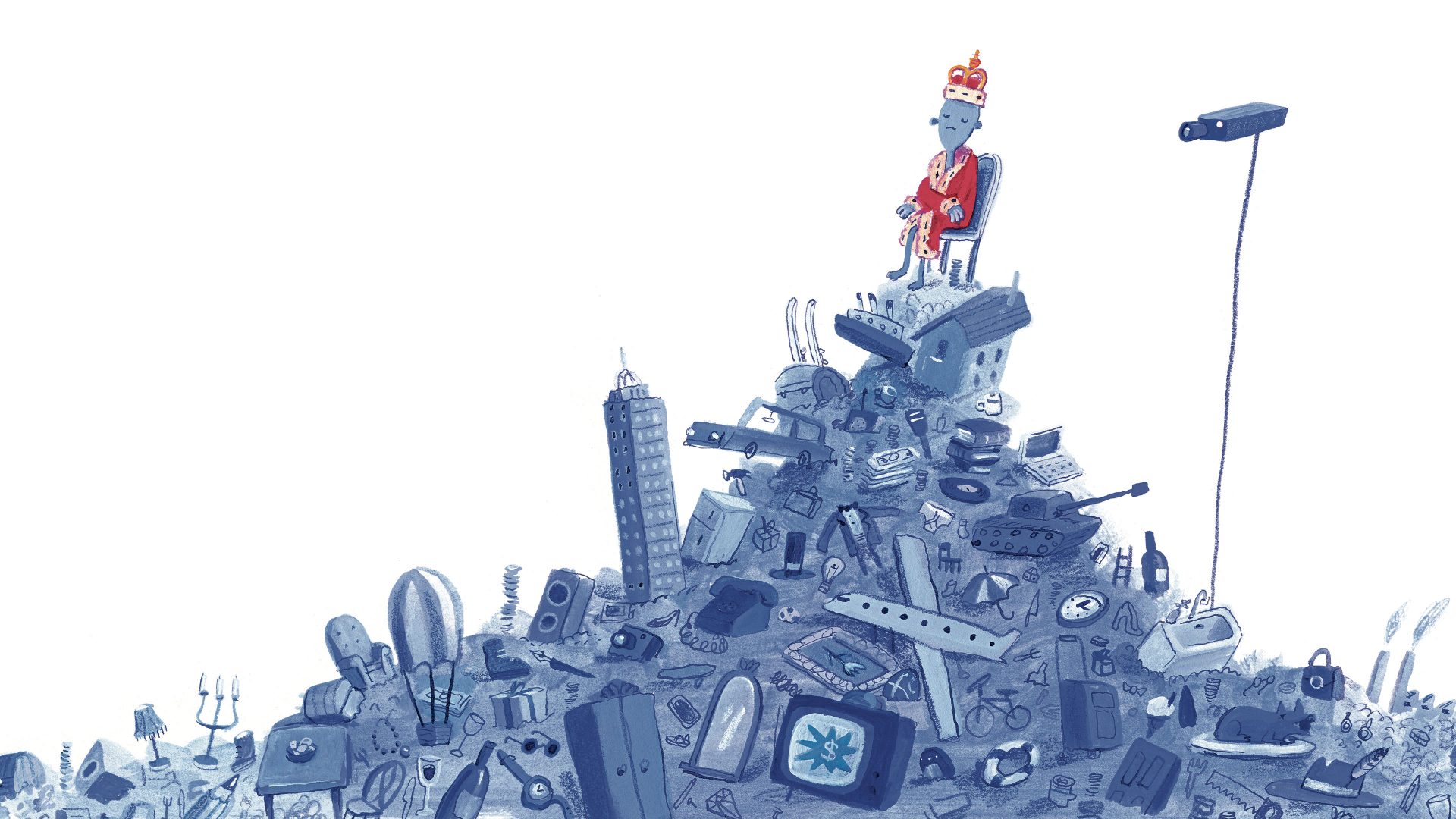Re: “Not again” (TNE #373). Imagine the scene, three retirees enjoying an afternoon beer in a pub in the middle of Swansea. On the wall is a large TV, volume down, showing the BBC News channel’s coverage of Trump winning the New Hampshire primary.
I said to the other guys that I found it difficult to believe that the US could even contemplate another Trump presidency. One of the others agreed, wondering how the US electorate could allow it to happen again, especially after the mess he made the first time round. The two of us went at it, bemoaning the US and its electorate.
The third member of our party had been quiet throughout all of this exchange. When the other two of us had paused for breath he said: “Guys, we are a country that voted for Brexit, elected Johnson and had Truss as our prime minister”. The pause turned into a silence as all three of us stared at the bottom of our pints in the realisation of what our electorate has done since 2016. A sobering interjection indeed.
I went to the bar and got three more pints.
David Evans
Pontlliw, Swansea
Reading Matthew d’Ancona’s “Donald Trump, dictator in waiting” (TNE #373), it is interesting to see him refer to It Can’t Happen Here by Sinclair Lewis, published in 1935. In 2016, when I read Lewis’s book, many people considered Trump’s candidacy as a bit of a joke. We have all learned better since then.
Clearly, in the 1930s, Lewis had carefully watched and fully understood how both communism and Nazism were able to flourish. Re-reading it now, as I am, is chilling. Be afraid, be very afraid.
Lyn Farnworth
Bere Regis, Dorset
Buggins’ turn
Re: Alastair Campbell’s Diary (TNE #373). It’s going to take an awful lot more than just hope to fix our rotten, antiquated, broken political system.
The first barrier to smash down is to replace first-past-the-post voting with some form of proportional representation, and that is a massive stumbling block. Neither main party has any interest in changing the system because they are perfectly happy with the current Buggins’-turn-next arrangement.
Graeme Brown
Second to none
Mandrake (TNE #373) reports that David Cameron is having second thoughts about his job as foreign secretary.
Is he allowed second thoughts? The country wasn’t, after voting in a referendum surrounded by lies, illegality, foreign interference and gerrymandering.
Christine Baynham
Low Marx
I am grateful for the high-quality journalism that can always be found in the pages of TNE. One particular pleasure is to read Nigel Warburton’s Everyday Philosophy (a philosophical perspective is so often missing from contemporary debate).
It was a little disappointing, however, to read in TNE #373 his attribution to Karl Marx of the principle “From each according to his ability, to each according to his needs.”
Marx should be credited with bringing this idea into political debate in the 19th century, but I understand it appeared in the Rule of Saint Benedict around c530AD as a way of organising life for Christians living in the community.
Felicity Rees
Bournemouth, Dorset
Rock bottom
Re: “A Spanish gardener in Yorkshire” (TNE #373). A lovely piece by Mick O’Hare apart from the jarring “rocked up”. An insulting way to describe a journey that took the gardener away from his homeland.
Richard Morris
Sutton Coldfield, Birmingham
Bridge too far
Re: “From sabotage to screen” (TNE #373), Charlie Connelly’s article about Pierre Boulle. Bridge on the River Kwai is about an army officer with such a strong sense of duty that he goes over to the enemy without realising it. This appeals to the French sense of irony and the French notion that the British are all barmy.
Bridge on the River Kwai is an allegory of Pétain and Vichy France. This was a controversial issue in 1950s France, so Boulle dressed the characters in British uniforms.
Don Adamson
Bradford, West Yorkshire
I like to think I take the New European to help me think without borders. As an English European, may I gently suggest that seen in full, Charlie Connelly’s excellent Great European Lives should avoid leaving readers with the impression no great Europeans were born on the mainland of the British Isles?
Roland Lazarus
Billericay, Essex
Sounds fishy
I will not be the only “Red Lichtie” to be startled by Josh Barrie failing to note in Taste of Europe (TNE #373) that smokies originate from Auchmithie, a few miles north-east of Arbroath, rather than the town that is now associated with the delicacy.
Local history has it that the fishing community of the village relocated to Arbroath in the 19th century. My own memory is that there may still have been smokehouses in Auchmithie in the 1950s.
Arbroath itself was created a burgh in 1178 when the abbey was founded. Perhaps the term “12th-century fishing village” fails to do the town justice. All Scots will know of the 1320 Declaration of Arbroath, affirming our independence.
Malcolm Clark
Penryn, Cornwall
Early Easter
Further to Will Self’s comment about his local Sainsbury’s having a storeroom of Easter eggs in mid-January (Multicultural Man, TNE #373), I know a retired teacher who told me that when he was a student he got a Christmas job working for Woolworths. He spent his first morning there in early December unloading a lorryload of Easter eggs.
Colin Price
Ilford, Greater London
No right way
Marion Van Renterghem (“A rightmare in Brussels”, TNE #372) is right to highlight the populist threat across Europe in June’s European Parliament elections.
One attenuating factor she mentions is that they have deep differences, quoting attitudes to Vladimir Putin as an example. There are several others.
These parties are reactionary against different things. Some pursue an “anti-woke” agenda on race, women’s rights and LGBT+ issues. Others are opposed to immigration (with some on the Dutch far right even arguing that this is because immigrants pose a threat to modern values on those same issues).
Some are economic neo-liberals, others are interventionist. Several are ultra-nationalist, which leads to conflicts among them (such as when the Italian and Austrian far right fell out over the status of the South Tyrol, the formerly Austrian German-speaking area of northern Italy). Some (though fewer since they saw the consequences of Brexit) want their country to leave the EU, while others don’t.
In the European Parliament, they have never been able to constitute a cohesive force. The political groups to the right of the mainstream centre-right EPP have constantly been dissolved, recreated with new permutations, split, argued and lacked meaningful influence. Even if they do win a few extra seats, that is likely to remain the case.
Richard Corbett
Former Labour leader, European Parliament
Shipley, West Yorkshire
Taxing times
I read Paul Mason’s “We’re trying to be a global military power on the cheap” (TNE #372) with interest and agreement. Again it is this government’s modus operandi of short-termism that is having a deleterious effect. The recent pandemic shone an invidious light on our unpreparedness, and now while the world is burning with wars and conflicts, the chancellor is promising tax cuts!
As Mason states, no one wants to weaponise to the nth degree, but this less-than-proactive stance will no doubt come back to haunt us.
Judith A Daniels
Great Yarmouth, Norfolk
Guilty men
It did nothing to lift my mood to see another cover featuring that odious oaf Nigel Farage (“In his pocket”, TNE #372). The main reason that he continues to exert any influence is that he is never held to account. As the main driving force of Brexit, Farage should be continually challenged about its failure and not allowed to get away with simplistic platitudes. Instead, he’s given more publicity, money and ego massages about his influence.
2024 is a crucial year around the world with elections being held in many countries, and the influence of simplistic populists such as Farage is a major concern. So let’s see the New European take the lead and start to challenge this.
Let’s have a series of covers and features that echo the 1940 Penguin book Guilty Men (let’s even steal the title), which nailed those responsible for appeasement. Let’s clearly show who are the people responsible for the mess we’re in now and the folly of simplistic sloganeering. You should also interview Farage and put the hard questions to him. There’s enough guilty men (and women) out there to make a set of playing cards.
Steve Penny
The losing side
We should all agree with Jonty Bloom (“The end of levelling up”, TNE #372) that it would be unworthy to view the post-Brexit troubles of the “regions” as poetic justice, however tempting.
It is not their responsibility alone: maps illustrating the 2016 referendum result remind us how pre-eminent the leave-voting communities were across England, including the south. The number of leave voters in some “leafy” constituencies around London was higher than many of those in south Wales (to use a sadly topical example).
Remain voters, being rational people, are surely putting anger at the referendum result behind them. There are more important things to focus on, from imminent food shortages to the potential collapse of the post-1945 world order.
Leave 2016 to the historians, who should resist the distraction of poetic justice in favour of its more prosaic cousin, unintended consequences. If anyone out there is still minded to boast “You lost – get over it”, my polite response would be: “I have got over it – but we all lost”.
Nigel Britton
Complicit
Re: Jason Pack’s “Blame Bibi, not ‘the Jews’” (TNE #370). Israel is currently both destroying itself, through losing its soul and all sense of proportion, and ensuring its future destruction by others, through radicalising an entire generation of Palestinians. This is as great, even if not as current, a tragedy as its destruction of Palestine.
Nor is it “just Bibi” to blame. Nor, patently, is it “the Jews”. It is those who knowingly voted in hard-right politicians who made no secret of their desire to “solve” Palestine by large-scale expulsion of Palestinians from the West Bank; it is those who turn a blind eye to settlers in the West Bank terrorising Palestinians out of their homes; and it is those non-Jews who are endorsing the current action and supplying the weapons for it while weakly tugging at a sleeve and saying, “Oh please, don’t be quite so horrid”.
Why can’t we hold two ideas in our heads at once? Antisemitism is vile. And to maintain that increasingly tattered argument that any criticism of the Israeli government is antisemitism, is to be complicit in the current slaughter.
Helen Porter
Newtown, Powys



